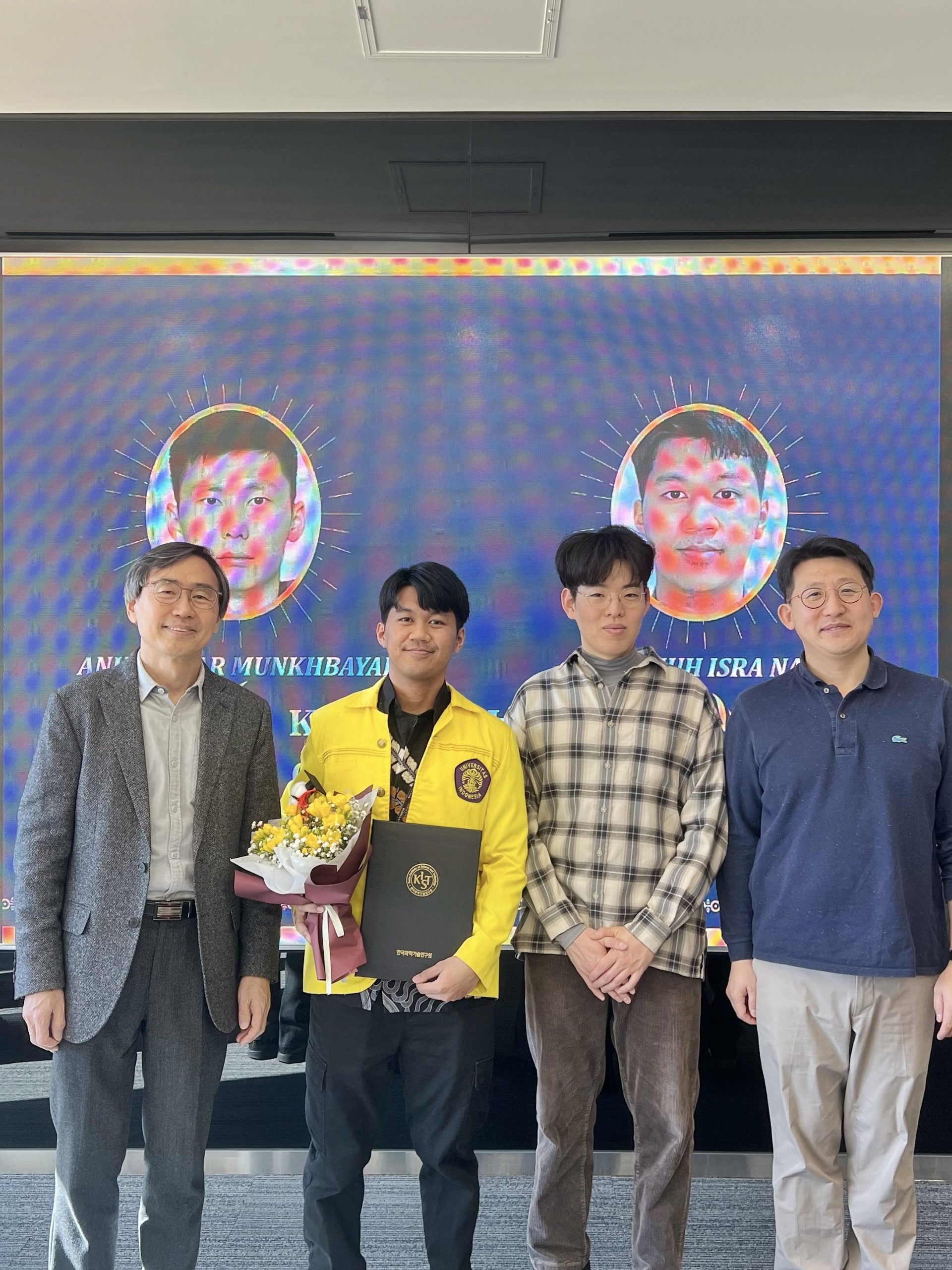The Faculty of Public Health (FPH) Universitas Indonesia (UI) continues to encourage its students to develop competencies at a global level, one of which is through internship programs at various world-class research institutions. Muhammad Isra Nabil Iksan, a Public Health undergraduate student majoring in Health Information Management at FPH UI, successfully passed the selection process for an internship at the Korea Institute of Science and Technology (KIST), a leading multidisciplinary research institution in South Korea. This program runs from September 3, 2024, to February 28, 2025, with all expenses fully covered by the South Korean government under the relevant ministry.
KIST offers collaboration opportunities with universities worldwide, including Universitas Indonesia (UI) and Institut Teknologi Bandung (ITB), for undergraduate students. Nabil discovered this program through the Instagram account of the UI International Office (@ui_international). The selection process consisted of three stages: an internal selection at UI, which included document submission such as a passport, recommendation letters from the faculty and academic advisor, and a research proposal. After passing the internal selection, the documents were sent to KIST for further evaluation, followed by an interview session for shortlisted candidates. The final selection announcement was made on July 1, 2024, with only two UI students successfully passing the final stage out of the seven applicants.
Nabil received full support from FPH UI throughout the application process, including flexibility in obtaining recommendation letters and easy communication with his academic advisor, Popy Yuniar, S.K.M., M.M., Ph.D., from the Department of Biostatistics and Demography at FPH UI. Additionally, financial support from Universitas Indonesia through the Center for Independent Learning (CIL) helped cover his needs while in Seoul, South Korea.
During the internship, Nabil worked with a team consisting of undergraduate, master’s, and doctoral students under the guidance of Dr. Chansoo Kim from the Computational Science Research Center. His work focused on Artificial Intelligence (AI) and machine learning, particularly in managing and visualizing datasets. His primary task was to analyze causal relationships between variables in datasets, including population distribution mapping and COVID-19-related data analysis. As part of the research team, he also assisted master’s and doctoral students in data processing and research missions assigned by his advisor.
Initially, Nabil planned to conduct research on malaria. However, after arriving in South Korea, he realized that malaria was not a major public health concern in the country. As a result, he shifted his research focus to artificial intelligence and dataset analysis, particularly related to COVID-19. His study aimed to analyze the causal relationships between different variables in datasets using AI and machine learning approaches. One of the main outputs of his research was data modeling to analyze COVID-19 transmission patterns, which could aid in health policy decision-making.
In addition, Nabil developed epidemiological data visualization methods to make complex health data more understandable for policymakers and academics. As part of the research team, he helped master’s and doctoral students in data processing and statistical model testing to improve the accuracy of disease spread predictions. Through this research, the goal was to generate data-driven policy recommendations, especially for future infectious disease prevention and mitigation efforts.
“At KIST, I had the opportunity to gain deeper insights into AI-based policy design and how machine learning can be used to predict disease spread patterns that influence health policies in a region,” said Nabil.
During his stay in Seoul, Nabil faced challenges, particularly in language and communication, as most of his colleagues were Korean citizens, not all of whom were fluent in English. Additionally, South Korea’s highly disciplined work culture, which demands long working hours, posed a challenge. However, he also appreciated the high tolerance towards minorities. “The facilities at the office were very inclusive, including halal food options in the cafeteria and a prayer room for Muslims,” Nabil shared. His experiences and challenges inspired him to bring new knowledge and insights into health information management and the implementation of technology in health policies in Indonesia.
According to Nabil, consistency in seeking information is key to securing such opportunities. He also emphasized the importance of preparing administrative documents well in advance, including a motivation essay and research proposal, which must be carefully structured to leave a strong impression during the selection process. Furthermore, he highlighted the importance of English proficiency, as it is the primary language of communication in academic and professional settings at the international level.
The Dean of FPH UI, Prof. dr. Mondastri Korib Sudaryo, M.S., D.Sc., expressed pride in Nabil’s achievements. “Nabil’s success is clear evidence that FPH UI students possess global competencies and are ready to contribute to the field of health research and technology. This internship not only provides Nabil with valuable academic experience but also strengthens FPH UI’s position in producing top graduates who are prepared to tackle public health challenges using technology and data-driven approaches.
We deeply appreciate Nabil’s hard work, dedication, and perseverance throughout this highly competitive selection process. We hope his experience at KIST will inspire other students to pursue international opportunities and contribute to health policy development in Indonesia. FPH UI will always support students in achieving their best accomplishments. Congratulations and best of luck, Nabil! Keep making Indonesia and FPH UI proud on the global stage,” said Prof. Mondastri.
Nabil’s experience in the internship program at the Korea Institute of Science and Technology (KIST) demonstrates that FPH UI students have the capability to compete internationally. The multidisciplinary nature of public health opens opportunities for students to contribute to various fields, including research and technology. With maximum effort, careful planning, and faith in God’s plan, every step taken will bring us closer to success as destined by Him. (DFD)

